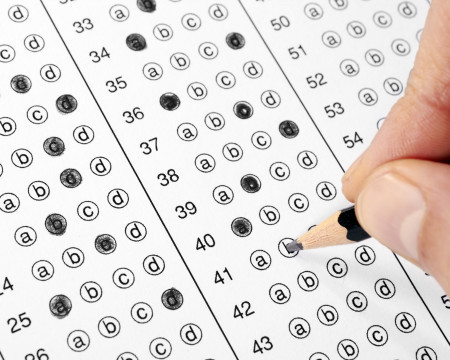While high school students at SIS, as well as other international schools across South Korea, face the continuous pressure of completing SATs, APs, and IBs, the students attending Korean public schools face a different type of pressure: the “Sooneung,” their one attempt at a nation-wide held test to get into their dream college. There are four mandatory topics – Korean, English, Korean History, and Mathematics – and students can choose one subject between Science, Social Studies, and Job Studies. Based on their performances the students will receive a grade from one to nine; grade one, the highest grade, often requires that a student gets less than two problems incorrect. These grades will be decisive in which college the student gets into, and is often the sole factor that is considered, with the exception of students applying through practical exams such as ballet and music. This year, on Nov. 21, students poured into test centers to demonstrate their accumulated knowledge in an attempt to reach for their dream colleges.
“Both the SAT and the Sooneung were created to select students well suited for the jobs and economy of the respective countries,” said Gray Macklin, High School Vice Principal. “I think the SAT does this a bit better because the structure of the Korean economy has fundamentally shifted since the Sooneung was first made.”
Although it is a complaint that is heard every year without fail, students who took the Sooneung this year mentioned that it was very difficult, fretting about the chance of a retake. Although experts say that the difficulty of the test was not much different from past years, the Korean exam caught the eyes of many. The Korean tests are structured in a way that is very similar to that of the well-known SAT’s; the only difference is that the passages the students read are much shorter, and there are at most three questions per passage. The apparent problem was that a lot of the passages were heavily centered on extremely specific information that is learned in sciences, specific to a point where eyebrows were raised by many and frustrations were expressed by many Mungwa students. For example, there was a passage that was solely on the properties of gravity, with subsequent questions describing certain properties that may or not be wrong Students were therefore asked to choose the correct property of gravity based on the passage. Therefore, Mungwa students, who barely study sciences during their high school lives and thus opt not to take the science exam among the three selective topics, were left bewildered by the sudden appearance of such excerpts. Igwa students, however, became very pleased, as it became an easy practice of their scientific knowledge that they had constantly studied, and it facilitated their performance in a topic they normally struggle in.
“Personally, I don’t think I would be able to withstand the pressure of taking just one test at my senior year with my college acceptances depending on it,” said Brian Lee (12). “I have a few friends who attend Korean schools, and from what I have heard, I think the SAT’s are much more healthier for the students because it gives a chance every three months or so. However, the application processes to American schools have a complexity that provides some unique challenges, so I guess it balances out.”
Many procedures were taken this year without fail to ensure that the students could display their full extent of knowledge and receive rewards for their arduous work. For example, so that noise that could potentially bother students taking exams could be minimized, students took the day off from school around the nation. Flight schedules were also adjusted so that the noise generated from planes during takeoff could not be a possible factor of distraction for the exam-takers. Subsequent to the tests, they were also rewarded with many privileges and events from different entertainment facilities. For instance, many restaurants, such as the well-known buffet “Ashleys,” offered a 50 percent discount for students who came to the buffet with their test receipts. CGV, Lotte World, and countless other companies gave massive price cuts so that students could enjoy the end of their final exam. Shopping malls also provided many discounts for the students who had fought well and hard during Sooneung.
“Taking tests for five topics and aiming to get less than two out of 50 questions wrong for each? I think I’m good with where I am right now,” said Andrew Cho (10). “But the many banners floating around, promoting discounts and events for the students who took Sooneung, does slightly intrigue me”
Controversies are apparent on almost every Sooneung: problem overlaps from past years, unreasonable difficulty levels, and information leaks. Lots of criticism is also directed at the fact that students are only given one chance each year, resulting in immense pressure and stress stemming from the fear of wasting a year in cram schools upon retake. Nevertheless, students persevere and give their best each year to achieve the grade they want and enter their dream colleges, under the encouraging help of the many different institutions which cancel schools and flights. They also benefit from various rewards provided by different companies in Korea. Perhaps one of the students at SIS will be willing to experimentally simulate and experience this same pressure while also enjoying the great benefits that follow.

